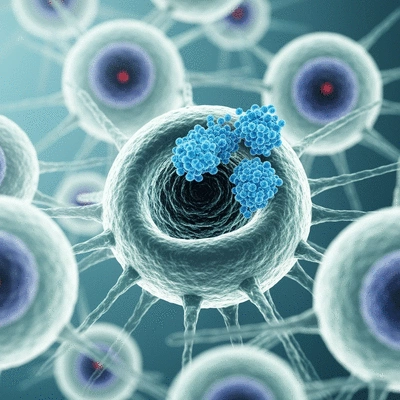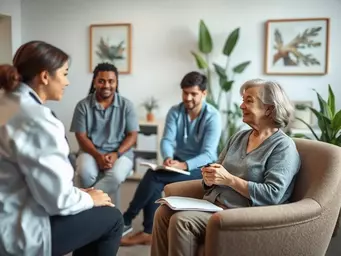Support Resources During Chemotherapy
By Dr. Elise Carter / Jan 28
Have you thought about how understanding your treatment can empower you during your chemotherapy journey? The more informed you are, the better you can navigate the challenges ahead.
Chemotherapy involves various drug classes, and understanding them, along with managing side effects, is crucial for patients. The visual below highlights how different chemotherapy agents work and the importance of patient engagement and support.
Each class has unique mechanisms and side effects.
Knowledge reduces anxiety and empowers patients.
Knowledge transforms into powerful advocacy.
Proactive steps enhance the treatment experience.
When faced with a cancer diagnosis, understanding chemotherapy can feel like a daunting task. Chemotherapy is a treatment that uses powerful drugs to target and kill cancer cells, but it can also affect healthy cells, leading to a variety of side effects. By exploring how chemotherapy works, we can begin to demystify this complex treatment and better prepare ourselves for what lies ahead.
Chemotherapy works by disrupting the growth and division of cells in the body. While it primarily targets rapidly dividing cells, it unfortunately affects healthy cells as well, which can lead to unpleasant side effects. Have you thought about how this treatment impacts not just the cancer but your overall well-being?
Chemotherapy refers to a range of drugs designed to combat cancer by interfering with the cancer cells' ability to grow and divide. Different chemotherapy drug classes work in various ways, such as damaging the DNA of cancer cells or blocking the hormones that fuel their growth. Understanding the specific medications involved in your treatment can empower you to take charge of your healthcare journey.
Each of these drug classes has its own set of potential side effects, which is why we need to be well-informed. By learning how chemotherapy works, you can engage more effectively with your healthcare team to tailor your treatment plan.
Many patients are understandably concerned about the potential side effects of chemotherapy. Knowing what to expect can dramatically reduce anxiety and prepare you for the treatment process. When you understand the common side effects, you can take proactive steps to manage them and maintain a sense of normalcy in your daily life.
Here are a few reasons why understanding side effects is crucial:
When patients engage with their treatment process, it fosters a sense of empowerment. Remember, the more you know, the better prepared you’ll be to handle any challenges that arise during your chemotherapy journey.
As we delve into the common side effects associated with chemotherapy, it's essential to recognize these symptoms and how they can affect your daily life. Understanding these effects can help you anticipate and manage them effectively.
What do you think about the importance of managing chemotherapy side effects? Share your thoughts below:
As we've journeyed through the complexities of chemotherapy and its side effects, it becomes clear that knowledge is power. Understanding what to expect can significantly ease the burden of treatment. The more informed you are, the better equipped you'll be to navigate the challenges that arise during your cancer journey.
Here are some key takeaways to keep in mind:
By empowering yourself with this information, you can take an active role in your treatment process. Have you thought about what steps you might take to better manage your side effects?
At Types of Chemotherapy, we believe that understanding your treatment options is vital. When you know the potential side effects of chemotherapy, you are less likely to feel overwhelmed. Instead, this knowledge transforms into a powerful tool that can help you advocate for yourself and your care. For instance, knowing about potential severe side effects can prompt discussions with your healthcare team, as highlighted by recent research on cancer treatment in women.
Consider keeping a journal to track your symptoms and how they affect your daily life. This can provide valuable insights not only for you but also for your healthcare team. Sharing this information can lead to tailored strategies that enhance your treatment experience.
How empowering would it feel to approach your treatment with confidence and clarity? Remember, knowledge truly gives you a voice in your care!
One of the most effective ways to manage chemotherapy side effects is through open dialogue with your healthcare providers. Are you comfortable discussing your concerns and symptoms? If not, that’s okay! It's completely normal to feel apprehensive. Your healthcare team is there to support you, and they genuinely want to help you navigate your treatment. Research has shown that effective communication with healthcare providers significantly improves patient outcomes and satisfaction.
Here’s how to encourage that conversation:
By fostering this relationship, you gain access to a wealth of resources and personalized care strategies tailored just for you. Have you considered how these conversations can shape your treatment experience?
As you navigate your chemotherapy journey, remember that you are not alone. There are countless resources available designed to support both you and your caregivers. From online communities to local support groups, these connections can provide invaluable insights and emotional support.
Consider exploring:
Connecting with others can illuminate your path and remind you that there is a community of support ready to help!
Have you thought about sharing your own story? Patient testimonials can have a profound impact. They offer hope and guidance to those just beginning their journey. By sharing your experiences, you contribute to a larger conversation about cancer treatment and resilience.
Consider these ways to share your story:
Your story has the power to inspire others and foster a sense of connection. How might sharing your journey help someone else?
As you move forward, don’t hesitate to consult your healthcare team about any concerns you may have. Remember, they are your partners in this journey! Being proactive about your health is key to feeling empowered.
Take the time to summarize your symptoms, experiences, and questions to maximize your appointments. This can greatly enhance your discussions with your oncologist. What would you like to address in your next visit?
Don’t forget to continually seek out resources that can provide you with coping mechanisms for side effects. Whether it’s through books, websites, or support groups, there’s a wealth of information at your fingertips.
At Types of Chemotherapy, we are dedicated to offering a comprehensive guide on various side effects and management strategies. Make it a point to explore these resources regularly!
Lastly, understanding your health insurance and financial assistance options is crucial during treatment. Navigating the complexities of healthcare coverage can be daunting, but resources are available to help you find the support you need.
Consider:
Being informed about your financial options can relieve some of the stress associated with treatment. How comfortable are you discussing these topics with your healthcare team?
Here is a quick recap of the important points discussed in the article:



 Support Resources During Chemotherapy
Did you know that support resources can significantly ease the journey through chemotherapy? Underst
Support Resources During Chemotherapy
Did you know that support resources can significantly ease the journey through chemotherapy? Underst
 Supporting Mental Health in Chemotherapy
When you think about cancer treatment, how often do you consider the emotional toll it takes on pati
Supporting Mental Health in Chemotherapy
When you think about cancer treatment, how often do you consider the emotional toll it takes on pati
 Chemotherapy's Impact on Relationships
Have you ever considered how a cancer diagnosis can reshape the relationships around you? The emotio
Chemotherapy's Impact on Relationships
Have you ever considered how a cancer diagnosis can reshape the relationships around you? The emotio